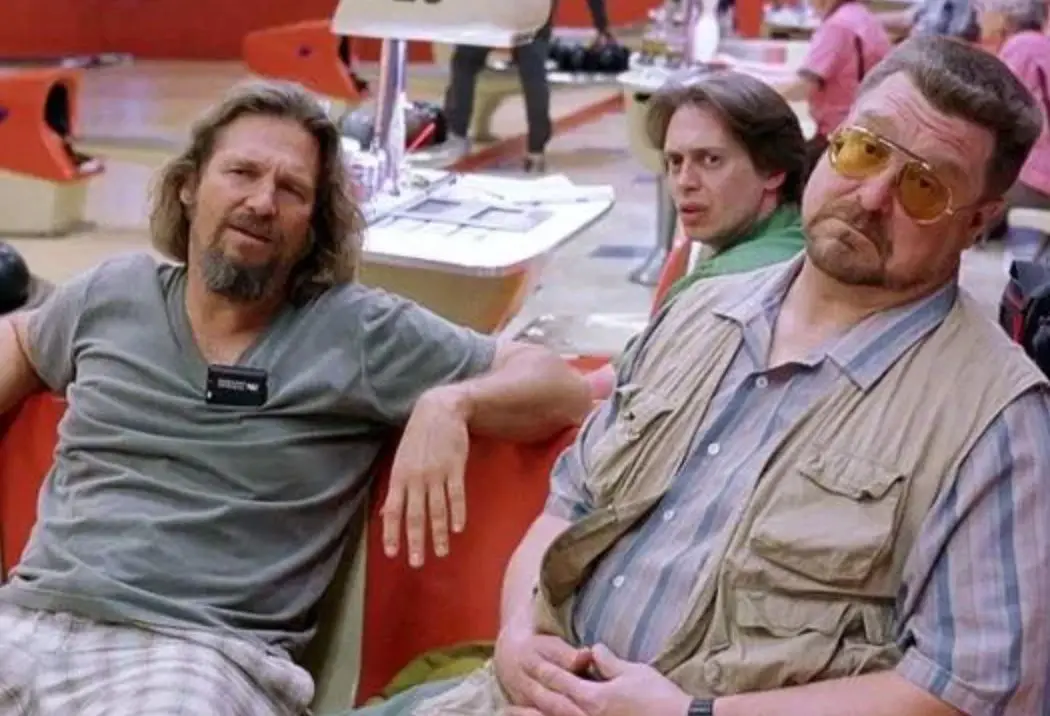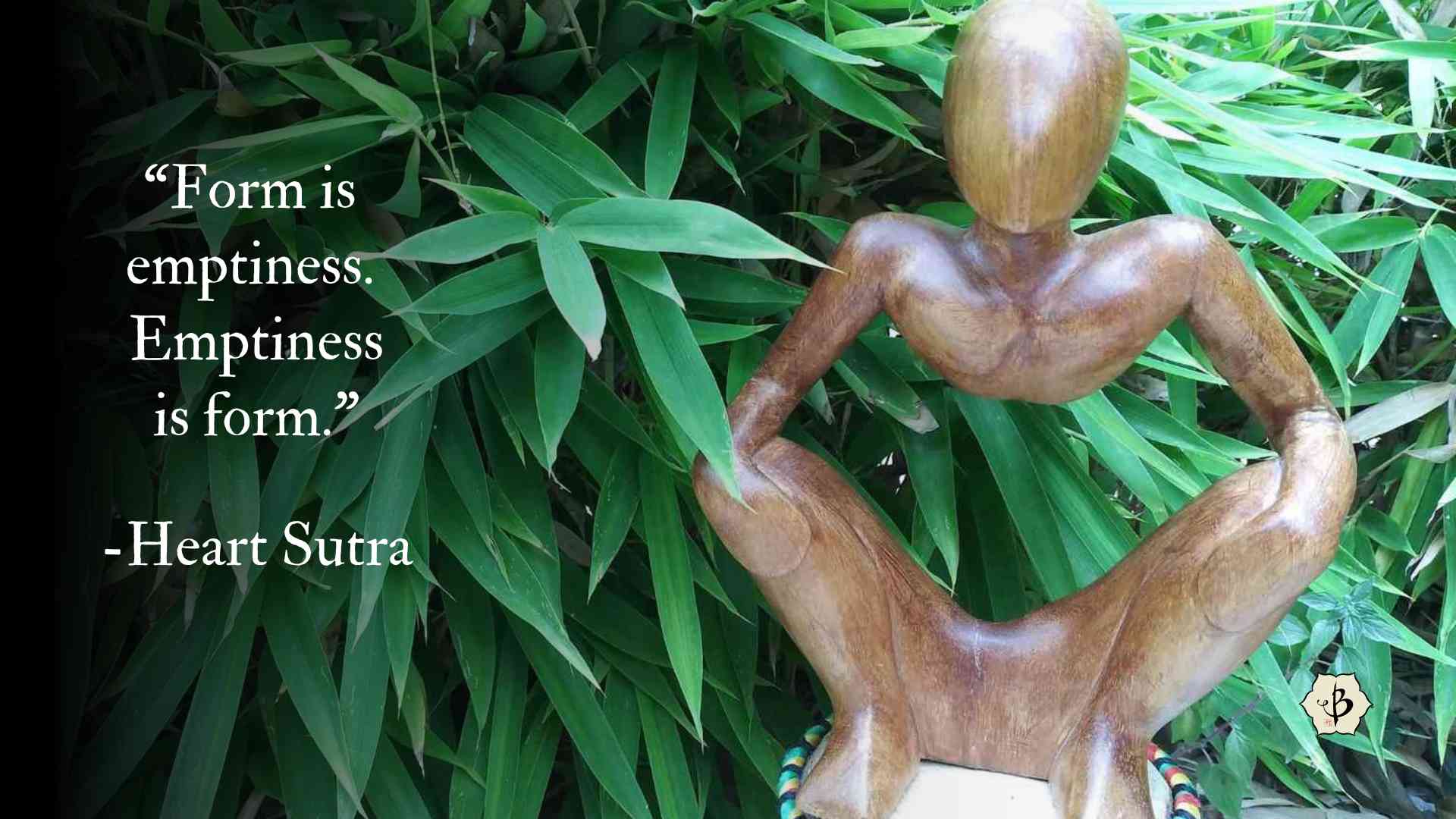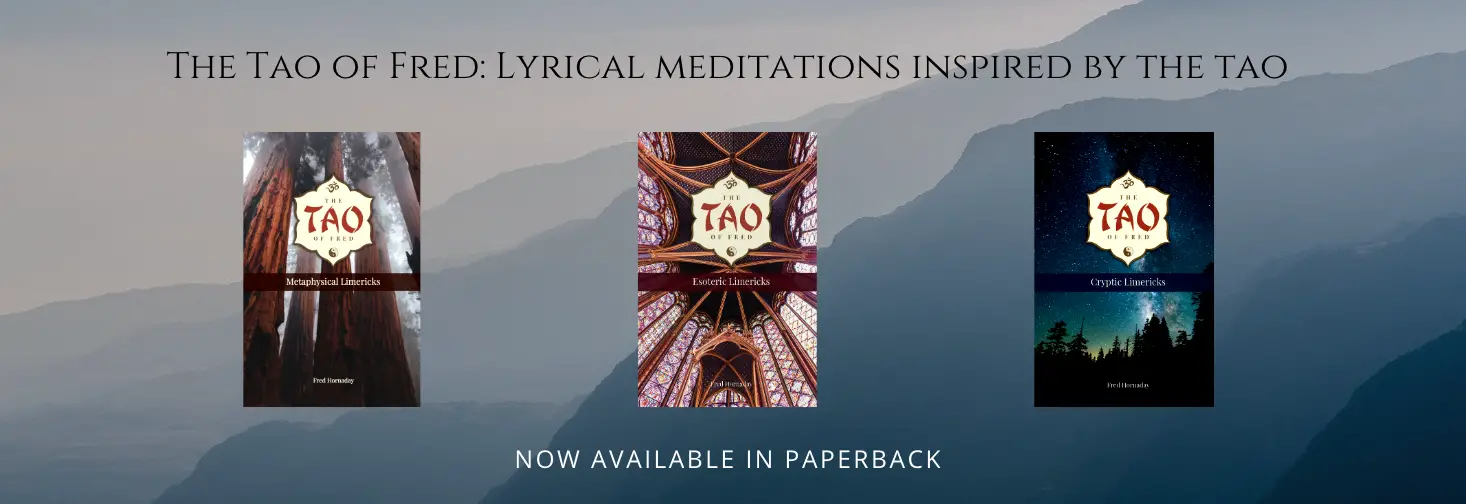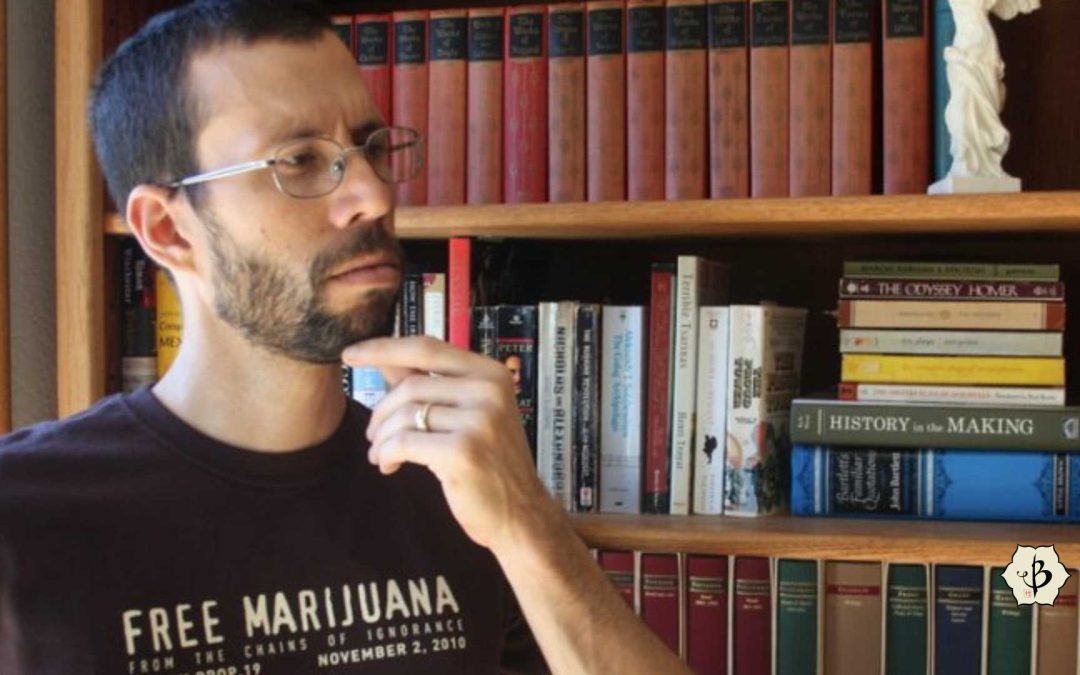Upon its release in 1998, The Big Lebowski became something of an instant cult classic. More than just a carnival of irony, absurdity and deadpan one-liners, the timeless tale of the Dude also conveys a bounty of timeless—albeit subdued—wisdom. And in some respects, we can read the Dude as the poster child for Taoism.
NOTE: This article first appeared in October 2019, most recently updated in June 2024.

Philosophical Characterization in the Big Lebowski
In what many consider to be the Coen Brothers’ finest hour, the story of the Big Lebowski centers around the escapades of three unlikely bowling buddies and their colorful digressions into the criminal underworld of Los Angeles, California.
At one extreme, we have Walter, a high-strung Vietnam vet who clearly never recovered from his days in the jungle. In terms of philosophical orientation, Walter has an obsession with rules. Regardless of the circumstances, it is clear to him in every instance, that in life—unlike Vietnam—we have rules.
In one of the opening scenes, he emphatically implores the Dude to draw a line in the sand, “and cross this line you do not!” And in the very next breath, he calmly points out the Dude’s politically incorrect use of the word Chinaman.
Later in the film, Walter’s strict adherence to Jewish law precludes him from bowling or driving a car, or even picking up the phone except in cases of emergency, on the sabbath day of Shomer Shabbos (or Shomer Shabbat). Such religious fidelity to the rules, in spite of the fact that Walter only converted to Judaism when he married a Jewish woman (from whom he’s already divorced).
We see this dogmatic attachment to rules and beliefs across all sorts of ideologies, and Walter is something of a parody of all those strands of fundamentalism at once. Whether it’s the First Amendment, the Second Amendment, the law of the Torah, or the rules of bowling, Walter insists on following and enforcing the letter of the law, to the point of absurdity. Even if it means brandishing a firearm in a bowling alley.
He even tolerates Nazis because, as Walter says, “at least it’s an ethos.” The only thing he cannot stand, not surprisingly, is nihilism, the total absence of rules and beliefs. And when the nihilists complain about fairness, Walter is quick to point out what very bad nihilists they are.
At the other end of the spectrum, there’s Donny, perpetually out of his element. Not so much nihilistic as he is oblivious, Donny is completely detached. But in contrast to the Dude, who we’ll get to shortly, Donny’s is not a healthy, constructive or reflective form of detachment.
Donny lives a life of naive indifference, the kind of indifference that has nothing to do with Buddhist detachment. Donny is neither living in the moment, nor being here now. He simply wanders about. He hasn’t cleared his mind through mindfulness meditation; it’s just a blank slate by nature. Even Walter has to remind him, “The world does not stop and start at your convenience, you worthless piece of…”
The Middle Way of the Dude
Among this quirky trio, the Dude sits more or less at the center, between an absolute obsession with the rules and a complete disconnection from social norms and expectations. The Dude follows the Middle Way and goes with the flow, like the way of the Tao.
Of course, the Dude is not an ideal representation of Taoism in its highest form. Everything in this film is turned on its side, after all, and the Dude gives us something like the Tao for the everyman. He is detached, and most certainly lazy, but he seems to have an innate sense of what’s right and wrong. This allows him to make judgments without the kind of dogmatism employed by Walter.
One way in which the Dude goes with the flow, throughout the movie, is by taking overheard words and expressions and restating them. More than just repeating someone else’s phrases, he repurposes them and perpetuates the ever-changing flow.
In his first scene at the grocery store, while writing a check for 69 cents for a quart of cream for mixing White Russians, the Dude overhears George H. W. Bush on T.V. telling Saddam Hussein, “This aggression will not stand.” And a few scenes later, the Dude tells the other Jeffrey Lebowski the very same thing.
Later in the film, he recycles phrases like “the parlance of our time” and “sometimes you eat the bar and sometimes…” Even the mantra “the Dude abides” is borrowed indirectly from the other, unabiding Lebowski.

The Tao of the Dude
The Tao, often translated as the Way, is commonly described as a river. The energy of life moves slowly but certainly, and softly it shapes the world. Resisting the flow is futile, and if the Dude is innocent of anything, that would be resistance.
The Dude is not trying to reverse the river’s course, nor change the world. He’s happy just to let it roll. And that’s why he enjoys bowling, smoking joints, and listening to CCR. Credence doesn’t make complicated music. In an era of psychedelic rock, their down-to-earth sound was refreshingly straightforward. Not unlike the Dude.
In spite of all this, the Dude is still engaged and participating. He’s laid back, but not completely out of it like Donny. It’s an easy-come-easy-go existence for the Dude, but he always shows up for practice, ready to roll strikes.
When you trace all the problems of the story back, it begins with the Dude’s attachment to his rug, the one that tied the room together. On the one hand, we can think of the importance of anything that can tie things together, something that offers meaning, wholeness and consistency.
On the other hand, we can take it as a warning against letting ourselves grow attached. Because of his attachment to the rug, the Dude goes in search of the other Lebowski and ends up falling down the rabbit hole with the nihilists and pornographers. In the end, however, it’s all just another unexpected change of course in the river’s flow, and the Dude just keeps a-rolling along.

Further reading
To learn more about Eastern Wisdom, check out some of the following articles.
- The Ten Thousand Things of Taoism
- Tibetan Sand Mandalas and Non-Attachment
- Inspirational Quotes and Proverbs of Eastern Wisdom
FEATURE IMAGE: Fred Hornaday, Taoist and heavy thinker.


























I recently watched the Dude after reading about Taoism for the first time. I saw it as Walter being very Western society based, telling The Dude this and that, how to act, what to say and what to do. When The Dude would get worked up about his attachments, Walter would tell him to calm down. I personally saw The Dude as a man trying to follow the Taoist ways and almost succeeding. The Cowboy narrator, I thought was the the epitome of taoism. When The Dude got very worked up at the Alley, The narrator appeared, and gave him some simple advice. Using quiet Taoist remarks ‘Sometimes you eat the bear, and sometimes, well, he eats you.’ The Cowboy, also said to the Dude ‘ I like your style’. I took that as Taoism accepting The Dude for the awareness of taoism.
I have very recently started reading on Taoism so I may have misunderstood this but it would be nice to hear your thoughts on it, Thank you
Hi Fred, I really like your interpretation of the film and the characters. I would say that your conclusions are at least as valid as mine, if not more so. It must be time for me to revisit this classic movie and give it another think!